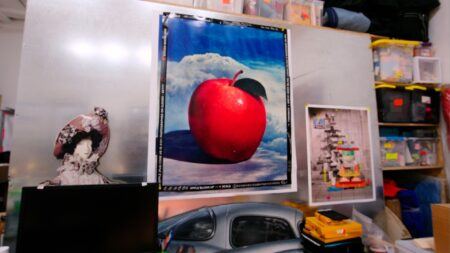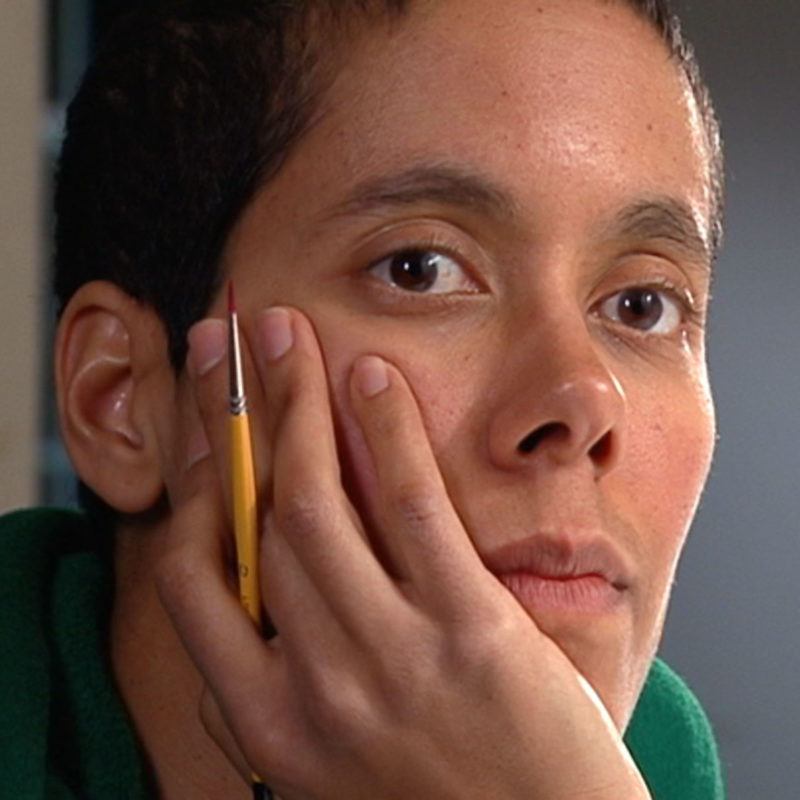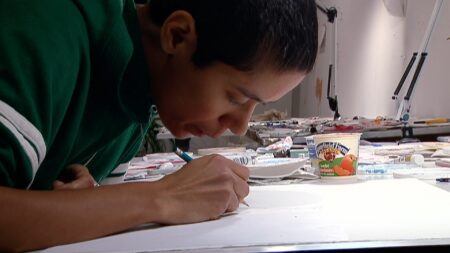Continue playing
(Time remaining: )
Play from beginning
Continue playing "{{ controller.videos[controller.getVideo(controller.currentVideo)].segmentParentTitle}}"
{{controller.videos[controller.getVideo(controller.currentVideo)].title}} has ended.
Newspaper ClippingsLaylah Ali
From her studio in Williamstown, MA, Laylah Ali discusses her system of organizing newspaper clippings. She gathers the clippings to discern the overarching narrative of what the media is reporting on at the time. From there, she clips away any interesting images and categorizes them into a series of files, bearing names such as “Corpses,” “Fire and Explosions,” and “The American Flag.”
Credits
Producer: Wesley Miller & Nick Ravich. Interview: Susan Sollins. Camera: Joel Shapiro. Sound: Tom Bergin. Editor: Jenny Chiurco. Artwork courtesy: Laylah Ali.
Closed captionsAvailable in English, German, Romanian, Italian, Japanese, Korean, Chinese, Italian
Through the Art21 Translation Project, multilingual audiences from around the globe can contribute translations, making Art21 films more accessible worldwide.
Interested in showing this film in an exhibition or public screening? To license this video please visit Licensing & Reproduction.
Laylah Ali creates her small, figurative, gouache paintings on paper with such precision that it takes her many months to complete a single work. She meticulously plots out every aspect of her work in advance, from subject matter to choice of color and the brushes that she will use. Her paintings resemble comic-book serials, but they also contain stylistic references to hieroglyphics and American folk-art traditions. Ali often achieves a high level of emotional tension in her work as a result of juxtaposing brightly colored scenes with dark, often violent subject matter that speaks of political resistance, social relationships, and betrayal. Although Ali’s interest in representations of socio-political issues and current events drives her work, her finished paintings rarely reveal specific references.
“The news clippings often correlate to what you might think of as a public narrative in the work— the ones that people might recognize, the strands of things that you might think of that you’ve been reading about, or hearing about—but they are never spot on.”
Laylah Ali
Laylah Ali
Laylah Ali
Laylah Ali
More on Recycling
John Baldessari
Ida Applebroog
Mark Bradford


